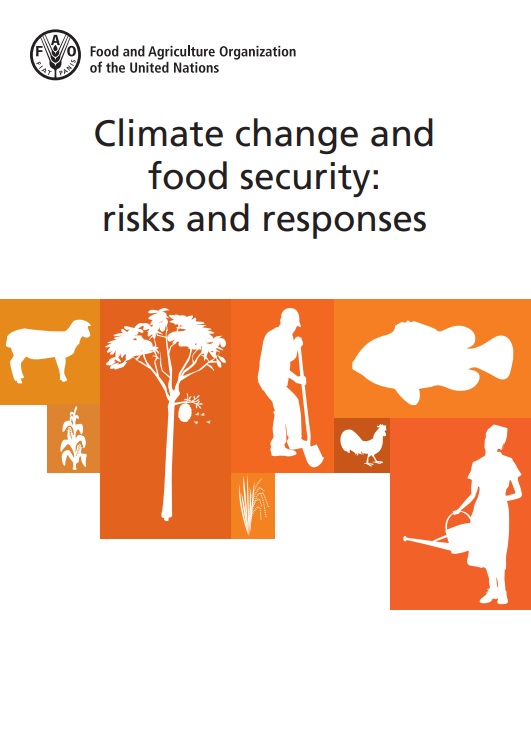🌿 COP 30 - Building a Greener Tomorrow
The 30th UN Climate Change Conference (COP 30) is taking place in Belém, Brazil. Stay informed about global climate actions, negotiations, and live sessions from 10 – 21 November 2025.
Get Updates
Climate change and food security: risks and responses

Files
Date
January, 2024Author(s)
- Vincent Gitz, Alexandre Meybeck, Leslie Lipper, Cassandra De Young and Susan Braatz of FAO
- Vincent Gitz
- Alexandre Meybeck
- Leslie Lipper
- Cassandra De Young and Susan Braatz of FAO
Abstract
End hunger, achieve food security and improve nutrition is at the heart of the sustainable development goals. At the same time, climate change is already impacting agriculture1 and food security and will make the challenge of ending hunger and malnutrition even more difficult. The effects of climate change on our ecosystems are already severe and widespread, and ensuring food security in the face of climate change is among the most daunting challenges facing humankind. While some of the problems associated with climate change are emerging gradually, action is urgently needed now in order to allow enough time to build resilience into agricultural production systems. In spite of considerable progress, almost 800 million people are chronically undernourished, 161 million under-five year old are estimated to be stunted. At the same time 500 million people are obese and 2 billion lack the essential micronutrients they need to lead healthy lives. Population and income increase as well as urbanization are driving increased and changing food and feed demand. FAO estimates that, to satisfy the growing demand driven by population growth and diet changes, food production will have to increase by at least 60 percent in the next decades.
Citation
Climate change and food security: risks and responses; 2016; Food and Agriculture Organization of the United Nations; P110
Publisher
Food and Agriculture Organization
Rights Holder
Food and Agriculture Organization of the United Nations
URI
https://knowledgehub.pksf.org.bd/collections/QUovZWVOUzBhaFRnMkNFdWxCV05iZz09
